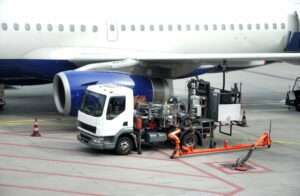Ensuring sustainability within the aviation sector

What are you planning to talk about at our SAF conference in June?
I will discuss the latest regulatory developments on SAF in Europe, in particular IATA’s recommendations for the implementation of a flexibility mechanism under ReFuelEU to ensure fair access to, and efficient supply of SAF, while guaranteeing airlines will be able to claim the emissions reductions associated with the SAF they will be paying for.
How important is SAF to the aviation industry in their drive towards decarbonise?
In June 2023, IATA published five roadmaps that describe potential trajectories, covering 130 milestones, which must be achieved to meet the aviation industry’s goal of net-zero carbon emissions in the sector by 2050. In all the scenarios and over that timescale, SAF plays the largest role in aviation’s decarbonisation. According to the roadmaps, 80% of the sector’s fuel carbon intensity reduction by 2050 (or about 65% of all emissions reduction) needs to be realised through SAF.
How can IATA work with producers to get the cost of SAF production down?
IATA collaborates with current and potential SAF producers to unlock existing barriers to upscaling production, such as regulatory uncertainty and uneven incentives for SAF versus other renewable fuels.
Long-term policies are needed to build new SAF producing capacity and reasonable incentives should facilitate allocation of a larger portion of the existing renewable fuel production to SAF. In addition to this, policies should promote the use of scalable SAF pathways, to avoid feedstock constrains which would derive in even higher prices.
For more information: Visit: iata.org













